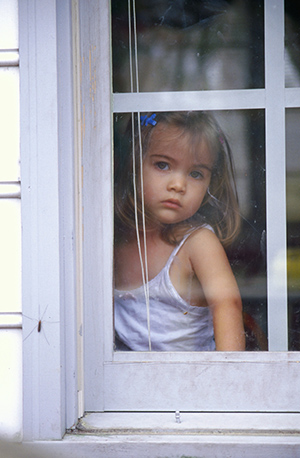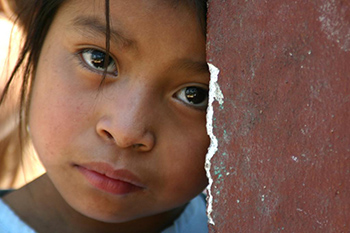Children with a parent in prison feel many confusing emotions. Learn more about what their experience is like.
In America, there are approximately 1.5 million children—or 1 in 49—living with a parent in prison. Children of prisoners often experience their parent’s incarceration as loss. That loss can impact them in a variety of ways, both internally and externally. Here is how they may understand or experience this loss:
A TRAGEDY
![Lost child_92805206[2]](https://www.prisonfellowship.org/wp-content/uploads/2014/03/Lost-child_928052062.jpg)
A parent’s incarceration means that a child’s life has suddenly changed, and often the child is too young to understand why. This is how things look to the child:
- NO WARNING
Arrest and incarceration is usually a sudden thing. There is no way to prepare. - EMOTIONAL TRAUMA
If a child is present when the parent is arrested, it is especially traumatic. - WORRY ABOUT THE PARENT
The child knows the parent is in a lot of trouble and worries about what is going to happen. - SUDDEN FINANCIAL CRISIS
If the parent was the wage-earner, the family is thrown into immediate financial crisis. Many opportunities that were once available to the child are now out of reach. - SCHOOL WORK SUFFERS
The child may begin to have problems in school. Grades, attendance, and relationships with classmates are all impacted negatively. - SEPARATION BY DISTANCE TO PRISON
The parent may be incarcerated up to 200–300 miles away and the child has no control over whether anyone will take them to visit their parent.
In many ways, this is a normal child facing a very abnormal situation. Instead of experiencing their childhood, they must now navigate what it looks like to live without their parent at home.
CONFUSING EMOTIONS
With or without visible trauma, having a parent incarcerated causes many confusing emotions. These are some typical feelings a child may experience:

- FEAR
The child may be afraid of being abandoned, of never seeing their incarcerated parent again, and of being taken away from their remaining parent or guardian. This fear can even translate to unfounded fears of specific people, places, animals, or activities. - WORRY
Concerns about the well-being of the incarcerated parent are common, even if the relationship is troubled. Children also worry that their current parent or guardian will not be able to take care of them or that there will not be enough food or money. - CONFUSION
Sometimes a child is not told the truth about their incarcerated parent’s situation. This leads to questions that the child is afraid to ask. The child can become confused about what is true and what is not. - SADNESS
The child may experience many different types of loss when a parent is incarcerated. Loss of the parent is usually the most painful. Other losses may include not having their parent with them on holidays, having to go live with another relative, or having to change schools. Each new loss resurrects feelings of previous losses. - GUILT
A child will often internalize feelings of responsibility for their incarcerated parent’s behavior. This can manifest in different ways, including wishing they had tried harder to stop Mom’s or Dad’s drug use. Or they blame themselves for not getting better grades or helping around the house. - ISOLATION
A child with a parent in prison often has difficulty expressing their feelings about the situation. Social stigma can keep a child from talking about their experiences. A well-intentioned parent or guardians may attempt to protect the child by avoiding conversations about the incarcerated parent. This can leave the child feeling very alone. - EMBARRASSMENT
A child with a parent in jail or prison can feel stigmatized, even when they know other people with family members who are incarcerated. Imagine the shame and embarrassment of seeing your mother or father’s picture in the news with a story about their arrest. The child may deal with the pain by pretending they don’t care. - ANGER
Anger may not initially show up, but over time and after more losses become evident, anger can emerge. Anger in a child with an incarcerated parent indicates a deep hurt.
PROTECTIVE FACTORS
 Not all of these emotions are present at the same time. They may ebb and flow and resurface after a triggering event that isn’t always discernable to an outsider. Some of these emotions may be constant for the child. There are things that a community can do to protect and help the child. Research on resiliency describes three key factors that are most protective: relationships, skills, and faith.
Not all of these emotions are present at the same time. They may ebb and flow and resurface after a triggering event that isn’t always discernable to an outsider. Some of these emotions may be constant for the child. There are things that a community can do to protect and help the child. Research on resiliency describes three key factors that are most protective: relationships, skills, and faith.
These three important protective factors—relationships, skills, and faith—can be found in the local Body of Christ. Let us pray that the Church will rise to meet this need and willingly open its arms to the children and families of the incarcerated.